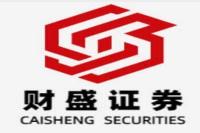Decoding the Hong Kong Stock Market: A Deep Dive into Daily Fluctuations
Meta Description: Hong Kong stock market, Hang Seng Index, Hang Seng Tech Index, JD.com, Nio, Anta Sports, stock market analysis, investment strategies, market trends.
This isn't just another market report; it's your insider's guide to navigating the thrilling, often turbulent waters of the Hong Kong stock market. Imagine this: you wake up, check your phone, and the numbers are jumping – a rollercoaster of gains and losses. Understanding this daily drama is crucial, whether you're a seasoned investor or just starting your investment journey. We'll peel back the layers of complexity, revealing the hidden forces that drive daily fluctuations in the Hang Seng Index and its tech counterpart. We'll dissect the performance of key players like JD.com, Nio, and Anta Sports, providing insights grounded in real-world analysis and expert commentary, going beyond the surface-level headlines. This isn't about abstract theories; it's about practical strategies and actionable intelligence to help you make informed decisions. We'll unravel the intricate web of geopolitical events, economic indicators, and company-specific news that shape the market's trajectory. Get ready to ditch the guesswork and embrace a data-driven approach to understanding the Hong Kong stock market, unlocking opportunities and minimizing risk. Prepare to gain a competitive edge, navigating the market with confidence and clarity. This detailed analysis, packed with insider knowledge and practical advice, will empower you to make smart investment choices and achieve your financial goals. So buckle up, it’s time to dive deep!
Hang Seng Index: A Closer Look
The Hang Seng Index (HSI), a benchmark for the Hong Kong Stock Exchange (HKEX), experienced a relatively muted start to the trading day. A 0.15% increase at the open might seem insignificant, but it reflects a complex interplay of factors. This isn't just about numbers on a screen; it's about understanding the underlying narrative. Remember, the market is a living, breathing entity, constantly adjusting to new information. Tiny movements can signal significant shifts in investor sentiment. We saw a similar, albeit slightly more pronounced, increase in the Hang Seng Tech Index (0.26%), suggesting a potential sector-specific driver. Understanding these subtle nuances is key to successful investing.
For example, the initial positive movement could be attributed to overnight news from mainland China, a positive global economic outlook, or perhaps a surge in investor confidence following a recent policy announcement. Conversely, a seemingly small dip could reflect concerns about inflation, geopolitical tensions, or even whispers of impending regulatory changes. The HSI isn’t just a collection of numbers; it's a reflection of global events and investor psychology.
Analyzing Key Players
Let's delve into the performance of some significant players:
-
JD.com (JD): The e-commerce giant's impressive >2% jump suggests strong investor confidence. This could be linked to positive earnings reports, strategic partnerships, or even successful marketing campaigns. It highlights the importance of keeping a close eye on individual company news. Remember, understanding the fundamentals – revenue growth, profitability, and market share – is crucial for long-term success.
-
Nio (NIO): The electric vehicle (EV) maker's >4% drop, on the other hand, paints a different picture. This could be due to a variety of reasons, ranging from concerns about competition in the EV market to broader macroeconomic anxieties affecting the tech sector. Remember, the EV sector is notoriously volatile, and investors need to be prepared for significant ups and downs.
-
Anta Sports: This sportswear giant experienced a >2% decline. This could be attributed to factors such as shifts in consumer spending, competition from international brands, or even supply chain challenges. Analyzing industry trends and competitor activity is critical for understanding such fluctuations.
It's important to note that these are just initial observations; a comprehensive analysis requires a deep dive into financial statements, market reports, and expert opinions. Remember, correlation does not equal causation. We are not offering financial advice; this analysis is purely for informational purposes.
Understanding Market Volatility: A Practical Guide
The Hong Kong stock market, like any other market, is subject to periods of intense volatility. These fluctuations can be driven by a multitude of factors, including:
-
Global Economic Events: Think global recession fears, interest rate hikes, or unexpected geopolitical events. These macro factors have a ripple effect across all markets.
-
Company-Specific News: Earnings reports, product launches, mergers and acquisitions, and even CEO changes can drastically impact individual stock prices.
-
Investor Sentiment: Market psychology plays a huge role. Fear and greed can drive irrational exuberance or panic selling, leading to significant price swings.
-
Regulatory Changes: Government policies and regulations can significantly influence market performance. Policy uncertainty, for example, can create volatility.
To navigate this volatility, investors need a well-defined strategy. This includes:
-
Diversification: Don't put all your eggs in one basket! Diversify your portfolio across different sectors and asset classes to mitigate risk.
-
Fundamental Analysis: Dig deep into a company's financials and business model before investing. Understand its strengths, weaknesses, and competitive landscape.
-
Technical Analysis: Study chart patterns and market indicators to identify potential trading opportunities. But remember, technical analysis alone is not a foolproof method.
-
Risk Management: Set stop-loss orders to limit potential losses and only invest what you can afford to lose.
Frequently Asked Questions (FAQs)
Q1: How can I stay updated on the Hong Kong stock market?
A1: Follow reputable financial news sources, utilize online trading platforms with real-time data, and consider subscribing to market analysis services.
Q2: What are some good resources for learning about stock market investing?
A2: There are numerous online courses, books, and investment websites that offer valuable educational resources. Look for reputable sources and always do your own research.
Q3: Is it risky to invest in the Hong Kong stock market?
A3: Like any investment, there's inherent risk. However, by diversifying your portfolio and conducting thorough research, you can mitigate potential losses.
Q4: What are the main factors influencing the Hang Seng Index?
A4: Global economic conditions, Chinese economic policy, investor sentiment, and company-specific news are major factors.
Q5: Should I invest in individual stocks or ETFs?
A5: The best approach depends on your risk tolerance and investment goals. ETFs offer diversification, while individual stocks can offer higher potential returns (but also higher risk).
Q6: Where can I find reliable data on Hong Kong stocks?
A6: The Hong Kong Exchanges and Clearing Limited (HKEX) website, along with reputable financial data providers, offer reliable information.
Conclusion
Navigating the Hong Kong stock market requires a blend of knowledge, strategy, and discipline. While the daily fluctuations can seem daunting, a systematic approach, combined with continuous learning, can significantly improve your chances of success. Remember, this is a marathon, not a sprint. Consistent effort, careful analysis, and a well-defined plan are your best allies in this exciting yet challenging world of investment. Stay informed, stay adaptable, and always remember to manage your risk. Good luck!



